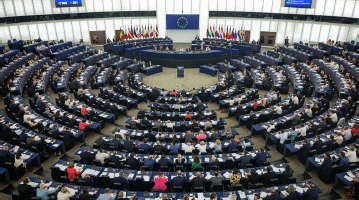The non-profit organization Alternativa Crna Gora, based in Podgorica, has called on citizens to boycott all supermarkets across Montenegro on March 11 and 14. The organization announced the boycott through social media, emphasizing the need for collective action to demand fairer treatment of consumers.
In their statement, Alternativa Crna Gora expressed pride in the solidarity shown by the people, stating that this movement represents an important moment in civic activism and resistance to economic injustices.
“Our shared determination sends a clear message: the people will no longer remain silent,“ the organization stated in its announcement.
The initiative encourages citizens to avoid shopping on these dates, arguing that every unfilled shopping cart is a vote for a fairer society, consumer rights, and a better future. The boycott is seen as a response to rising prices and what the organization describes as an unjust economic system that neglects the interests of the people.
“Those who believed we would give up now understand that the people of Montenegro have awakened and there is no going back,” the statement continues.
According to Alternativa Crna Gora, the boycott aims to demonstrate the power of collective action. The organization believes that empty stores, closed registers, and quiet supermarket aisles will send a strong message about public dissatisfaction.
“Let’s remain persistent and united, because only together can we bring about change,” the statement concludes. The organization has urged citizens to spread the message and encourage wider participation in the boycott, emphasizing that change comes through action, not just words.
This boycott represents more than just a temporary act of protest it is a reflection of deeper economic and social dissatisfaction in Montenegro. With rising living costs and concerns over corporate accountability, citizens are increasingly using collective action to demand fair treatment.
Such movements highlight the growing awareness among consumers that their spending power is a tool for change.
If successful, this boycott could set a precedent for similar initiatives, pressuring businesses and policymakers to address consumer concerns more seriously. Moreover, it underscores the importance of civic engagement in shaping economic policies, proving that an organized and determined public can influence the market and demand greater fairness in everyday life.
Written by our correspondent A.A.



